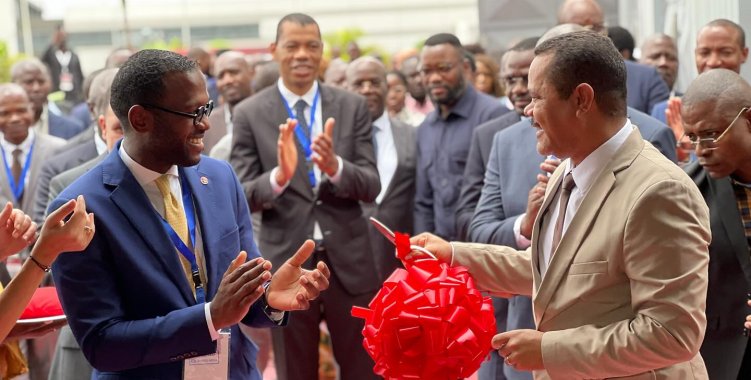According to the Ministry of Economy, in a note to which VerAngola had access, the official opening of the event was marked by the ribbon cutting, carried out by the Secretary of State for Economy, Ivan Marques dos Santos, and the municipal administrator of Viana, Demétrio de Sepúlveda.
In addition to cutting the ribbon, the Secretary of State also gave the opening speech of the event under the motto "The importance of Made in Angola for the Regional Economic Integration Process".
Speaking on the sidelines of the start of the fair, the Secretary of State said that Expo Feito em Angola is the "ideal platform" for the business class to be able to present their products, do business and contribute to food security.
In statements to the press, cited by Jornal de Angola, Ivan Marques dos Santos also said that the event shows the confidence of the country's producers in the measures that have been implemented by the Government in recent years.
The fair brings together "more than 200 companies, including adherents and non-members of the Feito em Angola Seal, distributed across the sectors of industry, agriculture, banking, textiles, food, beverages, health, education, technology and innovation, metallurgical industry, security, transport and others", says INAPEM, in a statement to which VerAngola had access.
The inauguration event was also attended by "secretaries of State from the different ministerial departments, deputies to the National Assembly, diplomatic corps accredited in Angola, members of the Provincial Government of Luanda, senior officials from INAPEM, FACRA, ZEE, public managers, representatives of the different segments of society, businesspeople and guests", says INAPEM.
The first edition of Expo Feito in Angola took place in December last year. This fair focuses on "promoting the Feito em Angola Seal, implemented as part of the process of diversifying the economy and promoting national production".
Furthermore, it seeks to "give visibility to goods and services produced" in the country, "which incorporate a minimum of 30 percent of local raw materials in their design", as well as "fostering the increase in national production, stimulating competitiveness and promote the improvement of product quality, as well as encourage the consumption of local products, making them preferred in the national consumer market", reads the statement.







